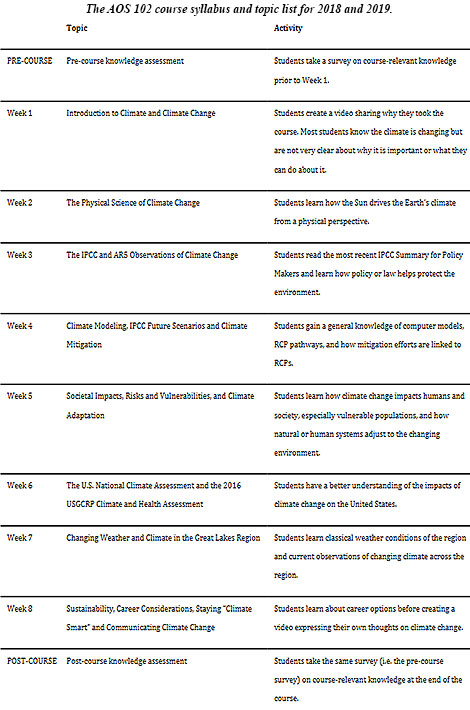While colleges pre-COVID-19 were already designing and implementing courses for online instruction, the pandemic has pushed entire academic course offerings into this rapidly evolving virtual environment. A new article in the Bulletin of the AMS about an online climate science course for undergraduates, which was developed, offered, and honed to near-perfection based on postcourse surveys before coronavirus, provides this tip for virtual success: Have students engage each other often, one-on-one, in a discussion forum. The result, the instructors are finding, is improved comprehension, with a high percentage of students successfully absorbing and accurately communicating course material.
The online course is titled, “Climate and Climate Change,” and has been offered through the Department of Atmospheric and Oceanic Sciences (AOS) at the University of Wisconsin—Madison since 2013. “Students enrolled in this course learn the physical principles governing Earth’s climate and climate change within the broader context of societal impacts and global political considerations,” writes lead author Andrew M. Dzambo and colleagues in the article.
The goal, they write, is to improve student science literacy and address misconceptions by implementing a key learning tool: “the weekly discussion forum where students engage with each other while testing their own knowledge.” The result is an increased knowledge of climate science and the Earth-climate system, as the surveys showed.
The course—AOS 102—has been improved since its inception, and it grew in popularity when it was moved to summer semester in 2016. It expanded its capacity in 2018 to accommodate a growing waitlist of interested students. The course is delivered through weekly worksheets, quizzes, and a final project, but it’s the weekly forum discussions that instructors credit with students’ retaining and being able to discuss climate science.
In their article, the authors present a template of the course for implementation with other atmospheric or Earth-related science coursework:
Although the discussion forums were monitored by course instructors, every student engaged other students at least once a week and freely expressed their own fact-based feedback to one another. By having the majority of the weekly course grade centered around discussion forums and worksheet assignments, complemented with weekly quizzes and an independent final project, the majority of students leave the class with a fundamental understanding of climate science (as evidenced by the course surveys) and with the confidence that they feel well informed about climate change.
